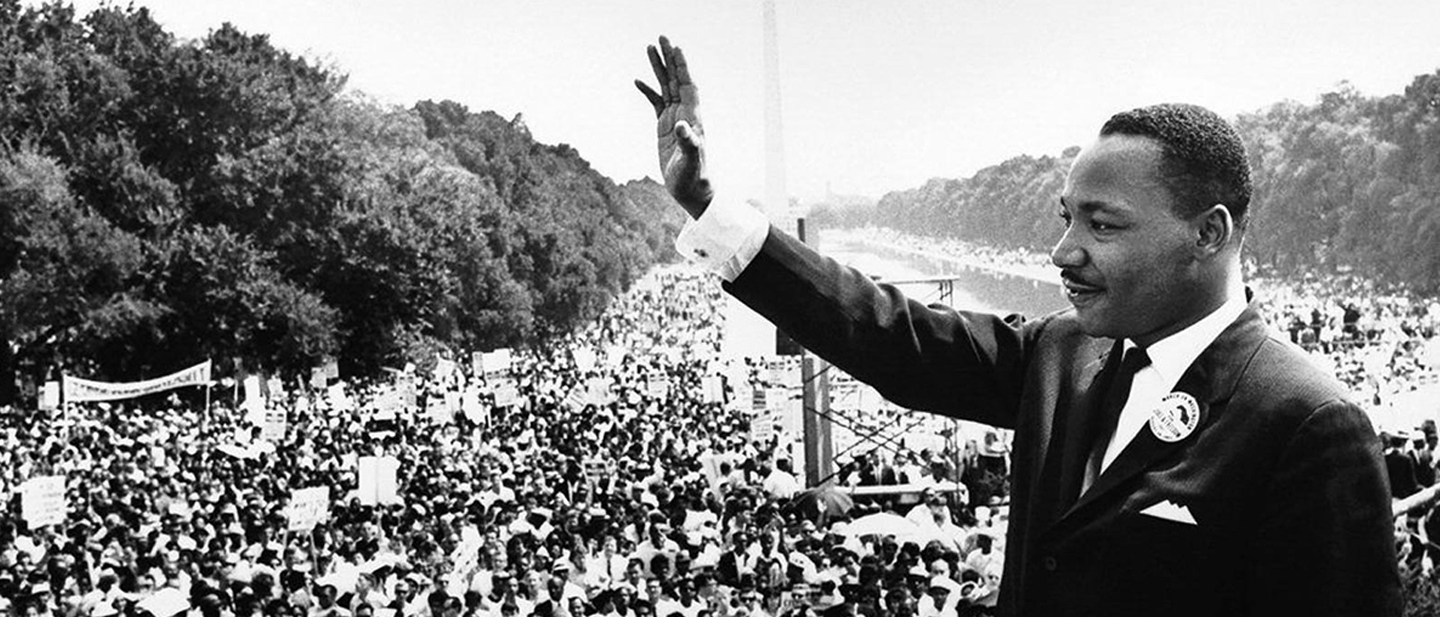DANIEL’S TAKE
Part 1 of 2 – 60 Years since the March on Washington: Measuring our Moral Compass

On August 28th, 1963, history was etched with a resounding call for jobs, justice, and equality as Martin Luther King Jr. delivered his iconic “I Have a Dream” speech from the steps of the Lincoln Memorial. As we reflect on 60th year since the March on Washington, the significance of that day remains consequential to the future of our democracy, echoing through the years and inspiring generations to stand up against systemic injustices. The upcoming anniversary gathering at the same spot serves not merely as a commemoration, but as a continuation of King’s vision of a Beloved Community— one where everyone is cared for, absent of poverty, hunger, and hate; which is why we must continue to bring attention to persisting challenges faced by marginalized communities. As a former staffer and life-long supporter of The King Center in Atlanta, Georgia, I truly believe Martin Luther King’s vision of an interconnected world is more relevant than ever. In fact, one of King’s last and most relevant perspectives shared can be found in his final book, “Where Do We Go from Here: Chaos or Community?” In the chapter entitled, “The World House,” there may be no clearer revelation as to where we are 55 years after his assassination. Dr. King eloquently articulated the fact that, “A widely separated family inherits a house in which they have to live together,” and this was his warning, “This is the great new problem of mankind. We have inherited a large house, a great ‘world house’ in which we have to live together — Black and white, easterner and westerner, gentile and Jew, Catholic and Protestant, Muslim and Hindu — a family unduly separated in ideas, culture and interest, who, because we can never again live apart, must learn somehow to live with each other in peace.”
I’d argue that our great dilemma to this generation 60 years since the “I Have a Dream” speech is how we as global citizens are able and willing to measure the progress made as it relates to racial equality, environmental justice, and the changes still needed to achieve true social equity. justice.
Martin Luther King Jr.’s legacy is one of courage, determination, and unwavering commitment to justice, and his “I Have a Dream” speech was not only a well articulated speech, it was a powerful testament to the aspiration for racial equality and unity. He envisioned a society where people would be judged not by the color of their skin, but by the content of their character. This timeless message reverberates today, reminding us of the enduring fight against discrimination, inequality, and bigotry.
As we reflect on the progress made since that historic day in 1963, it is evident that significant strides have been taken towards achieving racial equality. The increased representation of Black lawmakers in Congress is a testament to the evolving political landscape. However, this progress is tempered by the reality that disparities persist across various aspects of society.
Economic inequality remains a critical issue, with poverty rates among Black Americans remaining disproportionately high. While there have been improvements, the journey towards economic justice is far from over. Similarly, racial disparities in healthcare, as indicated by higher mortality rates among Black women and inadequate access to quality care, underscore the urgent need for comprehensive healthcare reform.
In 2023, we saw the resurgence of battles over voting rights and affirmative action, highlighting the fragility of the progress made. Recent efforts to suppress voting rights and challenges to affirmative action programs emphasize the necessity of vigilance and continuous advocacy to safeguard the gains achieved.
The 60th anniversary of the March on Washington is not a mere remembrance of the past; it is a call to action for the present and the future. The organizers aptly describe it as a continuation, reflecting the interconnectedness of the struggles faced by various marginalized groups. The fight for justice and equality transcends race, encompassing issues faced by Latino immigrants, women, the LGBT community, and those with low incomes.
At this defining moment in our democracy, it is imperative for all Americans to evaluate their roles in shaping a more just society. The King family’s call to pass revamped voting rights legislation resonates deeply, emphasizing the need to fortify the foundations of democracy by ensuring equal access to the ballot box.
As we approach this historic anniversary, we stand at a crossroads. It is a moment to reflect on the progress made, acknowledge the challenges that persist, and reaffirm our commitment to a just and equitable future. Each individual has a role to play in dismantling systemic barriers and fostering an inclusive society.
How transformative might it be if the whole of society embraced the 60th anniversary of the March on Washington as both a reflection of the past and a blueprint for the future? Martin Luther King Jr.’s words continue to echo generation to generation, reminding us that “the arc of the moral universe is long, but it bends toward justice.” Let us honor his legacy by standing up against injustice, advocating for change, and working tirelessly to ensure that the dream of equality becomes a reality for all.
As many gather at the Lincoln Memorial, let it be a reminder that the power of collective action can drive meaningful transformation. This moment calls for unity, resilience, and a shared commitment to shaping a better world — a world that fulfills the promise of equality and justice for all.
